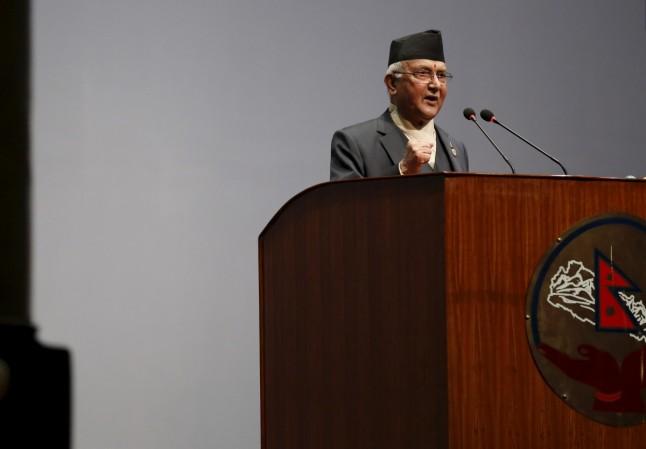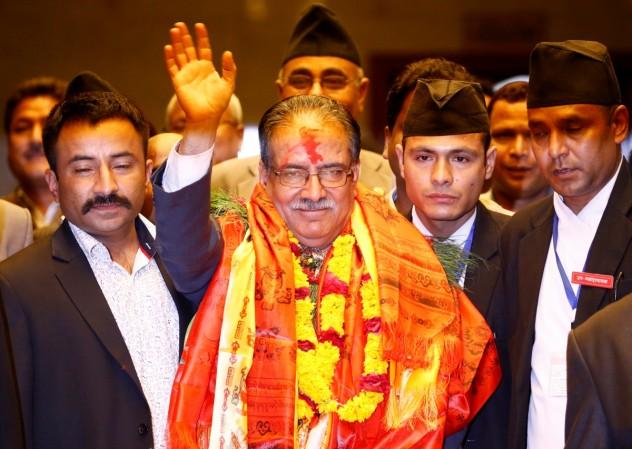Nepalese President Bidya Devi Bhandari dissolved the Parliament at the recommendation of the Cabinet of Prime Minister KP Sharma Oli, who has been engaged in a tussle intraparty fighting.
In a press release, the President's office said that the country will be going to a mid-term national election in April-May. Oli's recommendation to dissolve the House of Representatives (HOR) is being seen as a move to deny his political rival Pushpa Dahal Kamal "Prachanda" a chance to replace him as per a power-sharing agreement.
What happened - top developments
On Sunday morning, Oli called an emergency meeting of his Cabinet colleagues and passed a resolution recommending for dissolution of Parliament. The recommendation was sent to President Bhandari who approved it almost immediately.
The President announced that the country will go for parliamentary elections in two phases on April 30 and on May 10, 2021 — a year early than the scheduled time.

Soon after the announcement, members of ruling Nepal Communist Party and Opposition Nepal Congress and general public hit streets of the country including the national capital Kathmandu, protesting Oli's sudden move.
Many political leaders and experts said that the Prime Minister's move was "unconstitutional" since Nepal's Constitution does not allow dissolution of Parliament before exhausting all options to run the government.
Constitutional crisis ahead
Senior leaders of ruling Nepal Communist Party (NCP) and former Prime Minister Madhav Kumar Nepal criticised the move, saying it goes against the Constitution. NCP Spokesperson Narayankaji Shrestha termed Oli's move as "undemocratic, anti-constitutional and autocratic".
"The unprecedented move of the prime minister is a mockery of the democratic system," Shrestha said.
Later, senior leaders of the ruling NCP gathered at the residence of Prachanda to discuss the political situation arising out of Oli's decision. Prachanda's press advisor said that the leaders discussed PM's sudden move to dissolve the legislative body.

Some constitutional experts said that the President's decision may be challenged in the Supreme Court, terming it as pushing the country towards a constitutional crisis.
"The Nepalese Constitution doesn't allow the PM to go for a mid-term election by dissolving the House of Representatives if there is the possibility of forming the government from within Parliament," constitutional expert Bhimarjun Acharya was quoted as saying by news agency PTI.
After its meeting, NCP's Standing Committee "strongly condemned" Oli's action and said that it would amount to "thwarting the constitution of Nepal".
"By attacking the historic unity of the Communist Party, the trust and confidence of the people in the party, it has committed the crime of pushing the future of the country, the people and the party towards darkness and thwarting the constitution of Nepal," the resolution reads.
What made Oli call for fresh polls
In 2017 national elections, Oli-led CPN-UML and Prachanda-led CPN (Maoist Centre) merged to become the Nepal Communist Party, in a bid to bring political stability in the Himalayan country. While Oli is Chairman of the party, Prachanda is holding the office of the Prime Minister.
Though the parties shook hands for a great cause, the two parties remained intact at the level of workers of the respective parties and thus, the two factions continued to exist and often resulted in minor tussles and even in open conflicts.
According to the merger agreement, Oli and Prachanda were to hold the office of the Prime Minister for two and a half years each. However, Oli did not step down after completing his tenure and instead sought absolute power.
Aptly summing up Oli's quest for absolute power, Opposition Nepal Congress President and former Prime Minister Sher Bahadur Deuba recently said that the Oli government was attempting "to impose one-party totalitarian rule in the country."
In recent months, the infighting in NCP reached its peak, with accusations and counter-accusations on several issues, including corruption, with Prachanda's factions urging Oli to quit the post.









